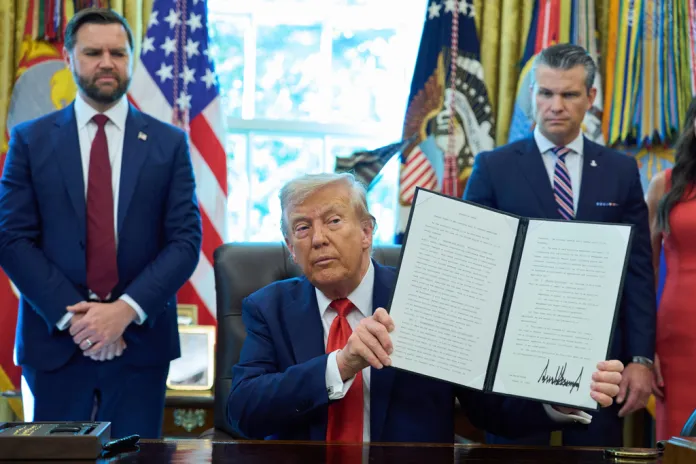


President Donald Trump will rename the Department of Defense to the “Department of War,” the Washington Examiner confirmed.
Trump will sign an executive order renaming the Pentagon on Friday, restoring the department’s name from the 18th century.
Recommended Stories
- Former Northern Command leader warns of 'incredible gaps' in homeland defense
- Salena Zito says strike on drug vessel is ‘what we voted for’
- US opens shooting war on Venezuelan drug cartels
The executive order will also grant Defense Secretary Pete Hegseth the title of “secretary of war.”
Hegseth will propose legislative and executive actions to make the name change permanent, the order says.
With the new name, the Department of Defense will require a complete rebrand across its web presence and at the Pentagon. The public affairs briefing room will be renamed the “Pentagon War Annex,” according to the White House.

Trump and Hegseth have been supportive of the name change in the past. The president said last month that the old name “just sounded better.”
“I think we’re going to have to go back to that,” he added. Hegseth told him that the name change was “coming soon.”
Hegseth wanted the name change to reflect the “warrior ethos” in the department, citing the old department name that “won” World War I and II. “We’re reestablished at the department the warrior ethos. We want warriors, folks that understand how to exact lethality on the enemy. We don’t want endless contingencies and just playing defense. We think words and names and titles matter. So we’re working with the White House and the president on it. Stand by,” he said.
The name was originally changed in 1947 to consolidate the military, merging the Navy, War, and Air Force departments under the temporary National Military Establishment. Two years later, it was renamed to the Department of Defense, which it has retained since.
CRIME IN US CITIES AS TRUMP AIMS TO EXPAND CRACKDOWN: LATEST COVERAGE
The purpose of the name change from the “War Department” to the Department of Defense was to emphasize the United States’s willingness to avoid war, a military history expert told the New York Times.
“The decision was definitely not about political correctness,” Richard H. Kohn, a professor emeritus at the University of North Carolina at Chapel Hill, said. “It was to communicate to America’s adversaries and the rest of the world that America was not about making war but defending the United States, and saying that if that requires war, there are four major armed services.”
